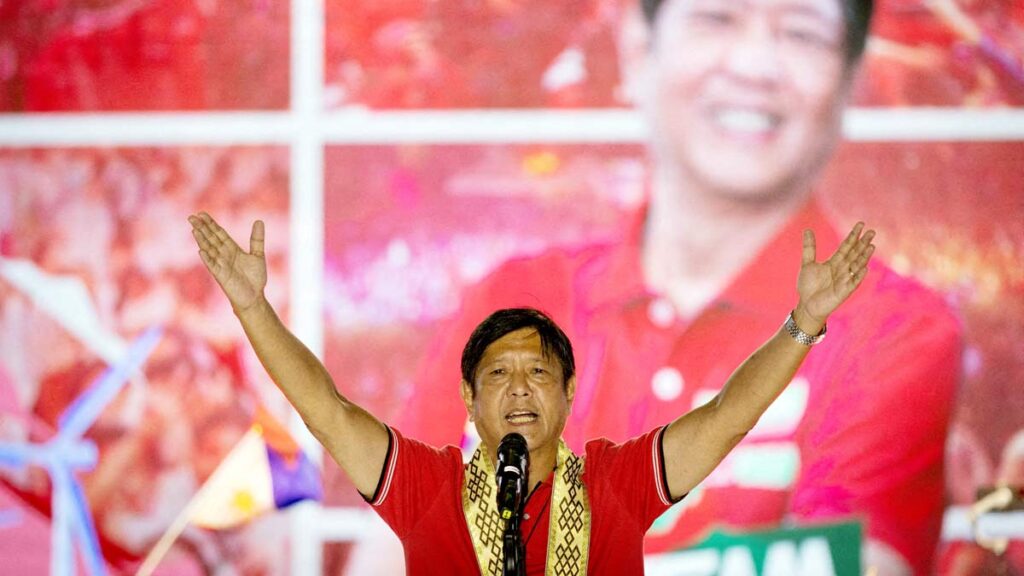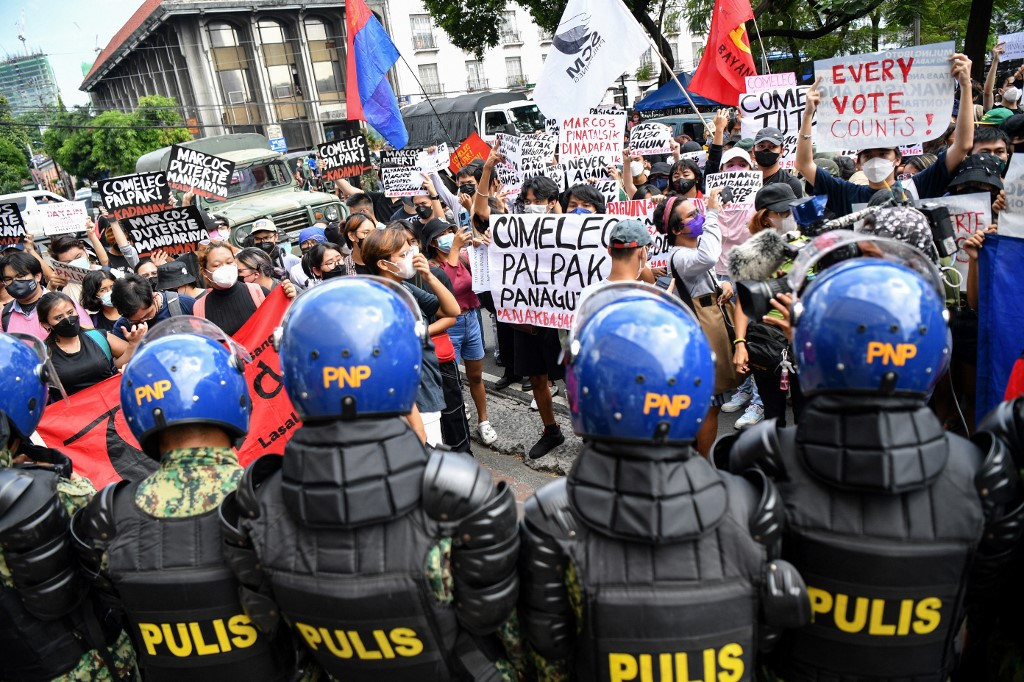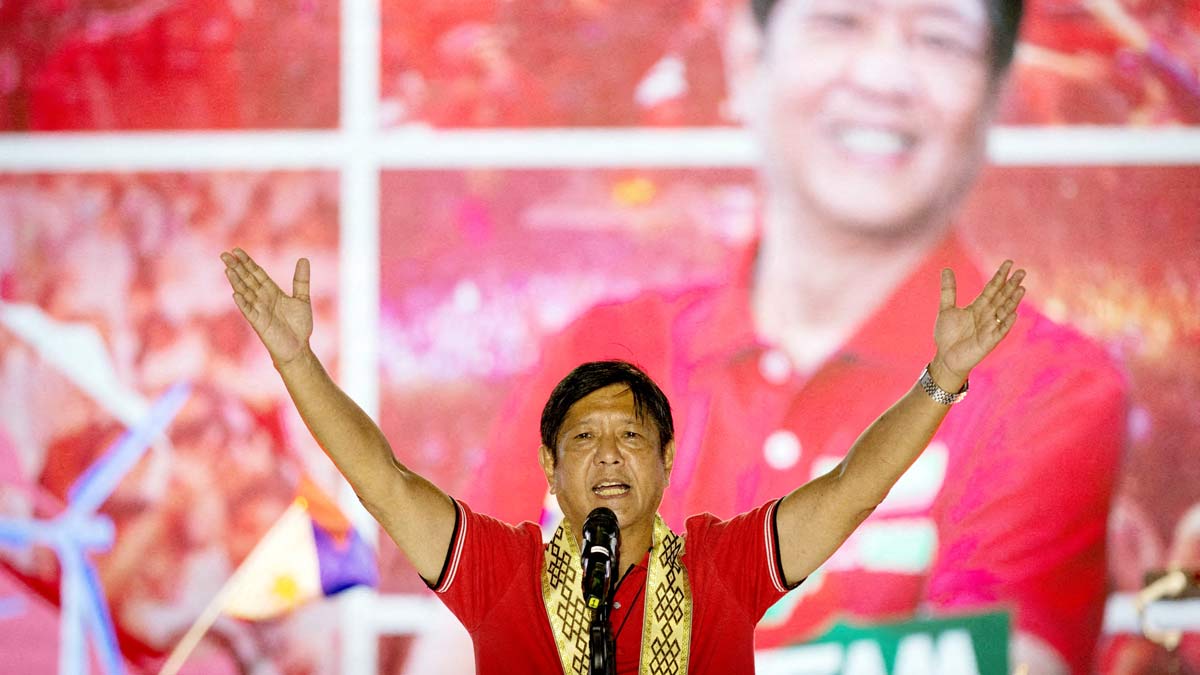The previous president of the Philippines, Rodrigo Duterte, had to pass his throne this year. Held on the 9th of May 2022, the Philippines presidential elections proposed a total of 10 candidates with 4 main ones. However, one particular candidate stands out from the others, albeit in a concerning way. Who is he?
Who is “Bongbong” Marcos and Why it’s Crucial

Meet Ferdinand “Bongbong” Marcos Jr. Even before the election period, many Filipinos expressed their distress about the nomination of Bongbong Marcos in the presidential election. His family is to blame. His father, named Ferdinand Marcos, was the 10th president of the Philippines from 1965 to 1986 with a controversial track record. He ruled the Philippines under a strict dictatorship from the year 1972 when martial law was first declared. Martial law was made as a defense against the act of communists, but it somehow became the beginning of the Philippines’ downfall at that time.
During the martial law regime, oppression and violence were used against political opponents, student activists, journalists, farmers, religious workers, and those who fought against the Marcos dictatorship. People were tortured, murdered, mutilated, and went missing. Women and children were included as the victims of massacres done in many places across the Philippines, and women were raped by the Philippine Constabulary during some of the massacres.
It doesn’t end there. The Marcos government borrowed large amounts of money from international lenders for the development projects of the country. However, Marcos and his cronies saw this as an opportunity to corrupt the money leaving bankruptcy across the country. Though the 1970s era is known by some people as the “golden age”, the country was experiencing a debt crisis. With a total of $26.2 billion in debt in 1985, the Philippines is one of the most indebted countries in Asia. As a result, extreme poverty and severe underemployment were experienced by its civilians, even till now.
The Question Grows, How Could Bongbong Marcos Win?

After reading the former passage, it is predictable for the question of “how” to appear in your head. The answer to that should be answered by a Filipino themself. Interviewed through Twitter Direct Message, K(19) who lives in Manila, Philippines shared her thoughts about the ongoing issue in the Philippines. “A lot of Filipinos do not have access to quality education, so they don’t know better than to believe whatever information they see online,” she stated.
She regrets that the schools there barely discuss the grim history of Martial Law, which aligns with the result of an analysis done by Nancy Kimuell Gabriel. She stated that martial law is not properly taught in schools. The students there were tasked to memorize dates and proclamation numbers, and they were not taught how to think critically about the period.
They do not talk about the atrocities that happened, and they portray that dark period in Philippine history as the golden age of the economy. As a result, it’s easy to see how a lot of people in the Philippines get swayed into the narratives crafted by the Marcos family and their supporters.
Worse, the social media there is not helping at all. The Philippines is a large country, consisting of more than 111.8 million people with 76 million internet users, it is very easy to spread misinformation online. Social media is an easy medium for people to discuss politics. However, it is a double-edged sword. “While it is good that social media promotes political discourse, it can also be used to spread disinformation and misinformation.”
According to K, people in the Philippines speculate the existence of “troll farms”, an enterprise consisting of people being paid to troll on the internet—spamming comments, posting content, and even spreading lies in support of, and against, a certain person/group of people. This has been more evident during the campaign period when an influx of falsities (both negative and positive) about candidates had spread around and either persuade or dissuaded people from voting for them.
After reading the former passage, it is predictable for the question of “how” to appear in your head. The answer to that should be answered by a Filipino themself. Interviewed through Twitter Direct Message, K(19) who lives in Manila, Philippines shared her thoughts about the ongoing issue in the Philippines. “A lot of Filipinos do not have access to quality education, so they don’t know better than to believe whatever information they see online,” she stated.
She regrets that the schools there barely discuss the grim history of Martial Law, which aligns with the result of an analysis done by Nancy Kimuell Gabriel. She stated that martial law is not properly taught in schools. The students there were tasked to memorize dates and proclamation numbers, and they were not taught how to think critically about the period.
They do not talk about the atrocities that happened, and they portray that dark period in Philippine history as the golden age of the economy. As a result, it’s easy to see how a lot of people in the Philippines get swayed into the narratives crafted by the Marcos family and their supporters.
Worse, the social media there is not helping at all. The Philippines is a large country, consisting of more than 111.8 million people with 76 million internet users, it is very easy to spread misinformation online. Social media is an easy medium for people to discuss politics. However, it is a double-edged sword. “While it is good that social media promotes political discourse, it can also be used to spread disinformation and misinformation.”
According to K, people in the Philippines speculate the existence of “troll farms”, an enterprise consisting of people being paid to troll on the internet—spamming comments, posting content, and even spreading lies in support of, and against, a certain person/group of people. This has been more evident during the campaign period when an influx of falsities (both negative and positive) about candidates had spread around and either persuade or dissuaded people from voting for them.
A Letter for Young Generations
Lastly, K delivered a message to be remembered by us, the young generations who rely upon our lives on the internet and digital world. “One thing you should learn before diving into the vast world of social media is media literacy. Learn to recognize credibility and be vigilant of the media you consume. Learn to question the things you see and then work to find the answers to your questions because just blindly accepting everything is what will allow for the complete revision of our history. One must only lend an open mind and put in some effort to find out the truth instead of outright believing baseless content being shared on social media.” Hopefully, the tragic history of the Philippines won’t repeat itself and the Philippines will find its own way to thrive in this new period of its president.
Reporter : Lulu Miranda Dewi
Editor : Fareez Eldacca
Foto : TheJakartaPost, Majalah Tempo
Reporter : Lulu Miranda Dewi
Editor : Fareez Eldacca
Foto : TheJakartaPost, Majalah Tempo

